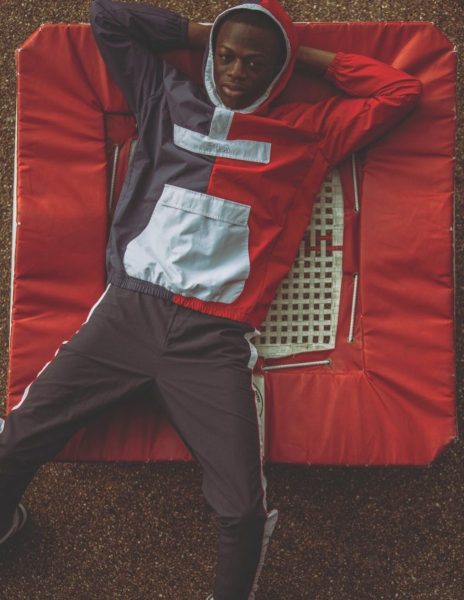Hus’ ascent was halted prematurely late in 2015 when he was hospitalised following a knife attack. It’s an ordeal that’s sure to leave its mark upon you, and with the negative media attention that comes with it, he’d be forgiven for wanting to venture into something else. Yet he’s still here and rising. Since the attack, J Hus has since performed at this year’s Culture Clash alongside Big Narstie and Mixpak. To come back into the scene after some months off to a 30,000 strong audience is enough to give Hus the confidence boost needed to pick up where he left off. “It was a good way to tell people that J Hus was back, after taking some time off,” he says.
Earlier this year, American rapper and Twitter beef instigator Azaelia Banks made disparaging comments about grime and UK rap. Although Banks’ is often linked with controversy, her comments came at a time when there’s a bright spotlight on black British music. Globally, black people have developed a somewhat silent solidarity in spite of the never-ending tide of racism and inequality; therefore this criticism seemed to repeal this solidarity. It hasn’t fazed Hus though, in fact, it’s made him more determined; “I heard Azealia Banks’ comments, and I feel like I’ve got something to prove” he says. “I feel like there’s good artists in the UK but we need to show our talent.”
In the short period J Hus has spent making music, he’s had to learn on the job, taking cues from his influencers such as Michael Jackson, an artist with his own crucibles to battle within music. “When I first started, I was rushing, and I wanted to do a lot, but I’ve learned to take my time with things more. Mostly though, I’m just taking things as they come,” he says. It’s an important lesson J Hus has taught himself at a time where it took Frank Ocean’s endless loop of watching paint dry to relearn the art of patience and no doubt the young rapper’s approach will do him favours in regards to career longevity.
As J Hus moves his pieces forward on the board, strategising his next move and preparing his album, only one thing is on the twenty-year-old’s mind – making sure his voice is heard. “I want everyone to hear me, and I want everyone to hear this sound,” he confidently affirms.





